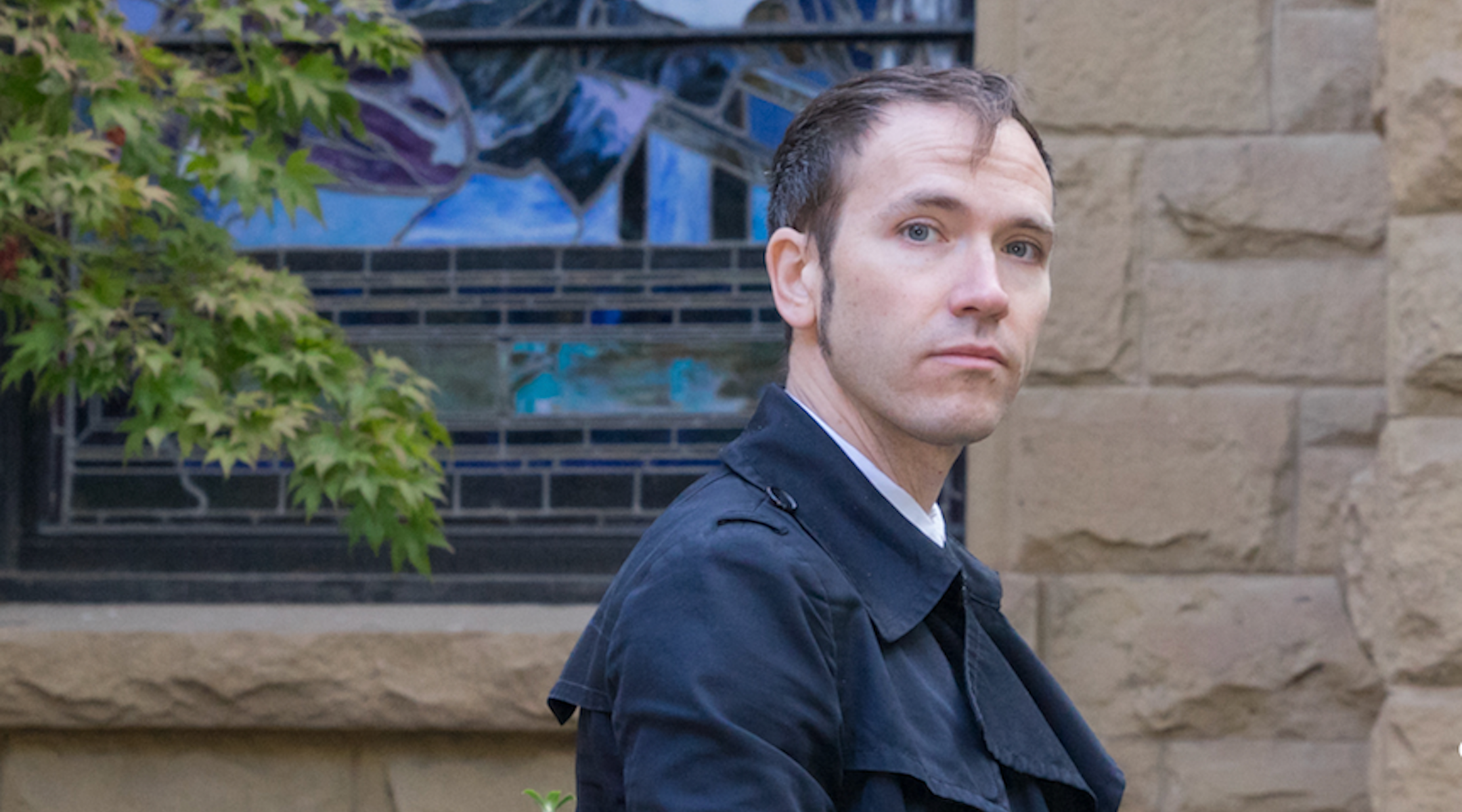(New York Jewish Week) — Jeremiah Lockwood, the singer, composer and frontman of The Sway Machinery, is preparing for an upcoming concert by “doing a lot of talking to ghosts.”
These “ghosts” are those of the Jewish women singers and cantors of the past century. As it happens, many women — not just men — have made deep contributions to Jewish spiritual life and music, but their stories were rarely told or preserved.
Lockwood is hoping to rectify that. On Sunday, at the Brooklyn Conservatory of Music, Lockwood will unveil his newest composition of vocal music: “In di vayber shul” (“In the women’s synagogue”), which is inspired by the legacy of these nearly forgotten Jewish women.
“Chazzanus [cantorial music]is very important to me,” said Lockwood, who is currently a fellow at the Yale Institute of Sacred Music. “It’s the music that inspires my creative work and it’s part of my family heritage. It’s just the essential musical organizing point for my life.”
Lockwood’s father, Larry Lockwood, was a composer and his grandfather, Jacob Konigsberg, was a renowned cantor. “Growing up in a cantorial family, we were given the ideology that it was a male art form — that was a viewpoint that was held by both the male and female members of the family. But that’s not true,” he said.
A lifelong New Yorker, Lockwood has been leading efforts to recognize and revive “the golden age of cantorial music,” sacred singing by Eastern European cantors on records and in live performances that became widely popular on record and live performances among Jewish audiences in the 1920s. Last year, he produced “Golden Ages: Brooklyn Chassidic Cantorial Revival Today,” a 10-track album featuring six Brooklyn cantors singing in the style of this music, which is operatic with lots of technical flourish and improvisation.
Lockwood describes the past year studying women’s voices — voices both cantorial and in a broader sense — as a “shock of recognition.” “There were women who were prayer leaders in small towns in Europe,” he said. “There were women who were priests, professional healers and exorcists, parallel to the Baal Shem Tov [the 18th-century founder of Hasidic Judaism]. There were women who were doing healing work.”
Since beginning his study, Lockwood said he’s come to understand the historic power of women’s voices: in synagogues and spiritual spaces, on the Yiddish stage and radio, in community initiatives and in family life. They include women like Goldie Malavsky, who along with her father and six siblings formed the Malavsky Family Choir, which performed in concert halls and hotels. Malavsky went on to become an independent soloist who toured around the world in the second half of the 20th century. Another cantorial star was “Khazante” (female cantor) Perele Feig, who in the 1950s had a weekly radio program on WEVD, the Yiddish language radio station in New York, and toured the Eastern Seaboard.
“It’s not shocking, it makes total sense. It fits well with what I understand about Jewish life,” he said of these women’s success. “The thing that’s surprising is just how thoroughly it’s been erased from contemporary Jewish life. I feel that is a problem.” Lockwood has mainly been using Jewish press archives to conduct his research and uncover these stories.
Lockwood’s piece, a tribute to these women’s voices and stories, is the culmination of his studies. The lyrics draw upon American and Yiddish language ethnographies — descriptions of Jewish society both in Europe and the immigrant communities of New York— as well as Eastern European folklore, Yiddish vaudeville and even contemporary music, like that of the late Jewish music composer Jewlia Eisenberg, a friend of Lockwood’s who died in March 2021.
On Sunday, the one-hour concert will be performed by singers Judith Berkson, Yula Be’eri and Rachel Weston. (The program premieres the previous day in New Haven.)
“It’s important to me to get deeper into why their [women cantors’] story disappeared,”Lockwood said. “There’s a throughline of stories that have been eroded from public Jewish consciousness that has to do with the roles that women play in sustaining the spirit life of the community.”
“In di Vayber Shul” will be performed at Brooklyn Conservatory of Music (58 Seventh Ave.) on Sunday at 7:30 p.m. Tickets, from $11.44, are available here.
The New York Jewish Week brings you the stories behind the headlines, keeping you connected to Jewish life in New York. Help sustain the reporting you trust by donating today.





